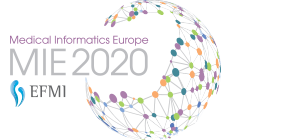
There is an increasing interest in exploiting clinical texts by means of language technologies and text mining approaches. Structured clinical information, in the form of codified clinical records relying on controlled vocabularies such as ICD10 is a key resource for statistical analysis techniques applied to patient data.
Clinical natural language processing (NLP) and AI-based document indexing can result in tools for automatic clinical coding by exploiting directly the unstructured content of EHRs. Such tools are playing an increasing role to generate results that do complement health informatics approaches focusing on translational medicine challenges, by providing relevant diagnostic information extracted from clinical narratives. This implies that text mining generated clinical coding results can provide a rich clinical context for patient health information necessary for other data analysis processes like bioinformatics and OMICS data exploration.
The workshop will include a panel discussion and short flash talks with experts on the role of shared tasks to promote clinical and biomedical NLP.
Some of the proposed topics for the discussion are: generation of shareable data collections for clinical NLP and automatic coding systems, use of AI and deep learning methods applied to clinical text mining, exploitation of unstructured content of EHRs for translational medicine, explainable IA strategies, evaluation metrics and scenarios for automatic clinical coding systems, multilingual clinical coding strategies and shared tasks.
CodiEsp setting and results were presented at the workshop First Multilingual clinical NLP workshop (MUCLIN) at MIE2020. The original MIE programme can be accessed here. This year, MIE was virtual thanks to the collaboration of EFMI and took place on July 4th, 2020.
This workshop had two parts:
First, there had been a general overview presentation on shared tasks and the results and setting of a particular shared task, i.e. CodiEsp.
Then, there had been a panel discussion including flash talks by experts on the role of the shared tasks to promote clinical NLP, resources, tools, evaluation methods.
The talks are available in the MUCLIN youtube playlist.
| Local Time (GMT+2) | Title | Presenter | Affiliation | More info |
|---|---|---|---|---|
| 1:00 pm | Opening Remarks | Martin Krallinger | Barcelona Supercomputing Center | Video |
| 1:05 pm | CodiEsp: clinical coding shared task in Spanish clinical case reports | Antonio Miranda | Barcelona Supercomputing Center | Video |
| 1:20 pm | Panel Session: flash talks | |||
| Flash talk 1 | FLE at CLEF eHealth 2020: Text Mining and Semantic Knowledge for Automated Clinical Encoding | Nuria García-Santa | Fujistsu | Video |
| Flash talk 2 | Contribution of CLEF eHealth and WMT biomedical translation task to multilingual clinical NLP | Aurélie Névéol | CNRS, France | Video |
| Flash talk 3 | The importance of shared tasks for biomedical text mining | Fabio Rinaldi | University of Zurich | Video |
| Flash talk 4 | Multilingual Text Mining | Francisco Couto | University of Lisbon | Video |
| Flash talk 5 | Lessons learnt on benchmarking at ELIXIR | Salvador Capella-Gutierrez | INB/Elixir, Barcelona Supercomputing Center | TBA |
| 1:55 | Closing remarks | Martin Krallinger | Barcelona Supercomputing Center |
See EFMI program.